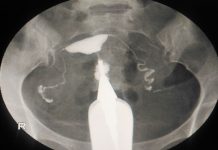In this Article
- What is a Combined Oral Contraceptive Pill?
- How does it Work?
- What about Effectiveness of the Pill?
- How to Take ‘The Pill’?
- What if you Miss or Vomit the Pill?
- Can all Women Use COCP?
- What are the Advantages of Combined Contraceptive Pill?
- What are the Disadvantages of the Combined Pill?
- What are Risks of Taking the Combined Contraceptive Pill?
- What are the Side Effects of Taking COCP?
- Can you get Pregnant after you Stop Taking the Pill?
- Can this Pill Protect you from STI (Sexually Transmission Infections)?
- Where You can Get Combined Oral Contraceptive Pills?
Combined Oral Contraceptive Pill (COCP) or colloquially called “the pill” is a popular method of birth control. It is an oral contraceptive and consists of a blend of an oestrogen and a progestogen. When consumed properly, it can effectively prevent pregnancy. However, it offers no protection from STI (Sexually Transmitted Infections).
The pill is required to be taken every day at a definite time. Women who use the pill can control their ovulation cycle. Furthermore, you can discontinue its use whenever you may want. Also, the combined pill can be used safely by most women. Only in a few cases, women with certain medical conditions may not be able to use this pill. However, it can be acquired only by prescription.
What is a Combined Oral Contraceptive Pill?

Combined Oral Contraceptive Pill is a birth control pill which is taken orally to prevent pregnancy. ‘The Pill’ includes low doses of two synthetic hormones which are quite similar to the female hormones-oestrogen and progestogen that are naturally produced in a woman’s body and are responsible for regulating ovulation; a process when ovaries release eggs.
Different kinds of birth control pills are available in the market. They may differ from each other in respect to the kind and dosage of the two hormones combined in the pill. It is advisable to choose the pill with the lowest dose of hormones. Some specific hormone combinations may be recommended to cure certain medical issues in women.
How does it Work?
The combined pill helps in averting pregnancy by:
- preventing the eggs from being released by the ovaries
- preventing the sperm from penetrating the uterus by thickening the mucus in the cervix
- thinning the womb’s lining which prevents the fertilized egg from implanting itself into the womb
What about Effectiveness of the Pill?
The Pill is known to be almost 99% effective. So, this means if 100 women use The Pill in a given year, there is a chance that 1 of them may become pregnant. But the effectiveness of the combined pill may reduce if the product instructions are not followed correctly. The effectiveness may also get comprised if you happen to miss taking the pill. Thus, the real effective rate of the pill maybe around 91% because in real life one is likely to commit errors.
How to Take ‘The Pill’?
It is desirable to take the pills every day at the same time. You can put a reminder on your phone or set a daily alarm to help you remember. The combined pill pack is usually available in a 21-day or 28-day pack. How to use combined oral contraceptive pills is explained below:
- Having the Period
If you choose the 28-day pack, you will take a hormone pill every day for 21 days. The pack also contains 7 inactive reminder pills called the placebos. These pills have no active ingredients and are there simply to keep you on track. After 21 days of taking the hormone pills, you will take these reminder pills. You are likely to get your periods while taking these reminder pills. So to put it simply you don’t take the hormone pills in the last week of your menstrual cycle during which you get your period.
2. No-Period Option
If you opt for the 21-day pack, you take the hormone pills every day for 21 days. On completion, you start a new 21-day packet. This way you continuously take the hormone pills without taking the inactive reminder pills and thus forgo your periods.
What if you Miss or Vomit the Pill?
If you miss The Pill, it can reduce its effectiveness in preventing pregnancy. In case you indulge in sexual intercourse without a male condom during this time, you may be required to take emergency contraception. It is important to take the emergency contraception within 24 hours of missing The Pill for it to be most effective.
You are at a higher risk of pregnancy if you happen to miss taking the pill on any day of your first week of taking the active hormone pills. If you happen to vomit the pill, the chances are that it may not have had the time to get completely absorbed into your bloodstream. It is better to take another pill immediately.
Can all Women Use COCP?
C0CP is usually considered a safe option by most women. However, it is sensible to consult your doctor before using COCP who may like to examine its suitability for you and discuss your plans for future pregnancy before prescribing it. Nevertheless, you may like to avoid using COCP in case you have the following conditions:
- Diabetes
- Medical history of Breast Cancer
- Liver or gallbladder disease
- Severe migraines
- History of a heart problem or stroke
- History of developing blood clots
- Abnormal vaginal bleeding
- If you are overweight and smoke
- If you are already on some medication
What are the Advantages of Combined Contraceptive Pill?
Some of the advantages of the combined contraceptive pill can be:
- Very effective method of birth control
- Convenient and easy to use
- You have an option of having lighter, shorter periods or no periods altogether
- It is not a hindrance to sex
- If you wish to become pregnant, simply stop using the pill
- It may lower your risk of endometrial and ovarian cancer by almost 50%
- Some combined pills may help in curing acne or pimples
- It can help in reducing the signs of PMS (Premenstrual Syndrome)
What are the Disadvantages of the Combined Pill?
The combined pill may have the following disadvantages:
- Remembering to take the pill consistently every day may not be easy
- Some combined pills may be expensive
- It may cause your blood pressure to rise
- It offers no protection against sexually transmitted infections (STI)
- It can initially lead to temporary side-effects like nausea, headaches, breast tenderness in some women
What are Risks of Taking the Combined Contraceptive Pill?
There are certain risks related to using the combined contraceptive pill. But these risks are usually slight. The benefits of using the pill may outweigh its risks in most cases.
- Blood Clots: The oestrogen contained in the pill may become the reason for blood to clot more easily. In case a blood clot develops, it can lead to deep vein thrombosis (blood clot in veins) in the leg or pulmonary embolus (clot in the lung).
- Cancer: Studies suggest that women who use the pill may be at a slightly higher risk of being diagnosed with cervical cancer, breast cancer and a rare type of liver cancer. However, more research needs to be done in this field to reach definite conclusions.
What are the Side Effects of Taking COCP?
Some of the side effects of taking COCP are listed below:
- Mood swings
- Nausea
- Breast tenderness
- Headaches
- Spotting or breakthrough bleeding
- Skin changes like the appearance of dark patches
Can you get Pregnant after you Stop Taking the Pill?
The Pill does not affect the natural fertility of a woman. So, a woman can easily get pregnant after she stops taking the pill. In case you become pregnant while on the pill and wish to continue with the pregnancy, your baby may not get exposed to any extra risk.
Can this Pill Protect you from STI (Sexually Transmission Infections)?
The Pill does not offer any protection from STI (sexually transmitted infections). It is best to use the male condom to safeguard yourself against sexually transmitted infections.
Where You can Get Combined Oral Contraceptive Pills?
Combined oral contraceptive pills are available at most drugstores, pharmacies, community clinics or health clinics.
Constant and regular use of the pill is important to guarantee its effectiveness. Missing or vomiting the pill, diarrhoea may reduce the effectiveness of the pill in preventing pregnancy. In short, it is a safe, convenient, effective and a non-invasive method of preventing unwanted pregnancies.









